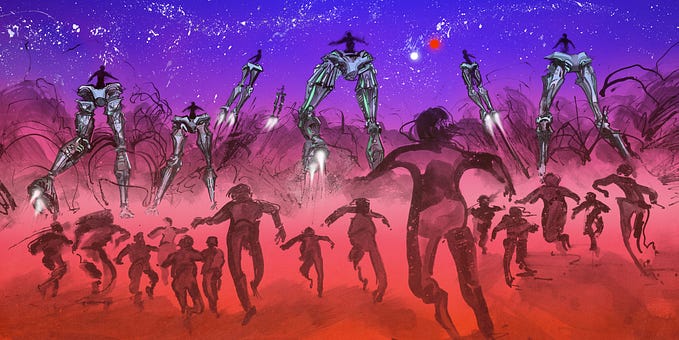Member-only story
How the Internet Destroyed Our Natural Ability to Navigate the Offline World
The author of ‘The Stars in Our Pockets’ on eschewing the internet, getting lost, and ‘climate change of the mind’

 When Howard Axelrod was a junior at Harvard, a horrific accident during a game of pickup basketball left him blind in one eye. Five years later, in the fall of 1999, still struggling to navigate the landscape around him, he retreated to the woods of northeast Vermont. His plan was to live off the grid, reorienting himself with the natural environment. “I needed to live without the need of putting on a face for anyone, including myself,” he wrote in his first book, The Point of Vanishing: A Memoir of Two Years in Solitude.
When Howard Axelrod was a junior at Harvard, a horrific accident during a game of pickup basketball left him blind in one eye. Five years later, in the fall of 1999, still struggling to navigate the landscape around him, he retreated to the woods of northeast Vermont. His plan was to live off the grid, reorienting himself with the natural environment. “I needed to live without the need of putting on a face for anyone, including myself,” he wrote in his first book, The Point of Vanishing: A Memoir of Two Years in Solitude.
When Axelrod reentered society two years later, the technological landscape had changed. People moving through the streets of Boston didn’t look each other in the eye; instead, they stared at the cell phones down at their hands — a trend that would only be accelerated a few years later with the release of the iPhone. “The sidewalk, the bus I took to work, the Starbucks around the corner — each seemed its own version of a ghost town, inhabited by people who were there but who also weren’t,” he writes in his new book, The Stars in Our Pockets: Getting Lost and Sometimes Found in the Digital Age.
An insightful perspective on how life online has caused a phenomenon he describes as “climate change” of the mind, The Stars in Our Pockets examines how our brains have adapted in the online era, charts the “map” of our physical and virtual worlds, and reflects on the complications that arise from jumping between them. Axelrod, who has eschewed cellphones long before the digital backlash, stresses that his book is “not a crusade against people using their phones.” Instead, “it’s a way of looking at the adaptations we’re making, what the tradeoffs are, and whether they’re worth it.”
OneZero caught up with him to discuss our “endangered cognitive abilities,” how our techno-utopian moment has roots in the Enlightenment period, and how the internet can kill curiosity, among other subjects.
This interview has been edited and condensed for clarity.










